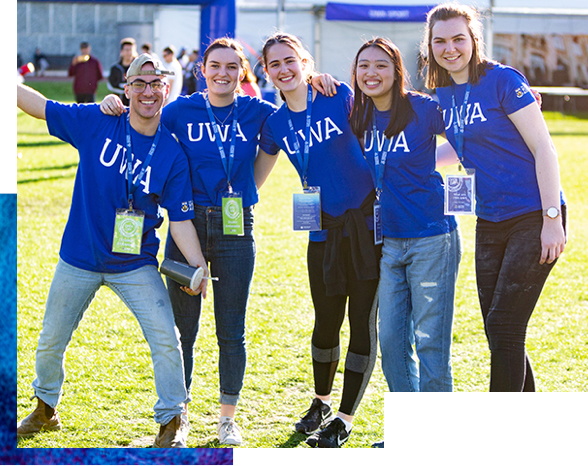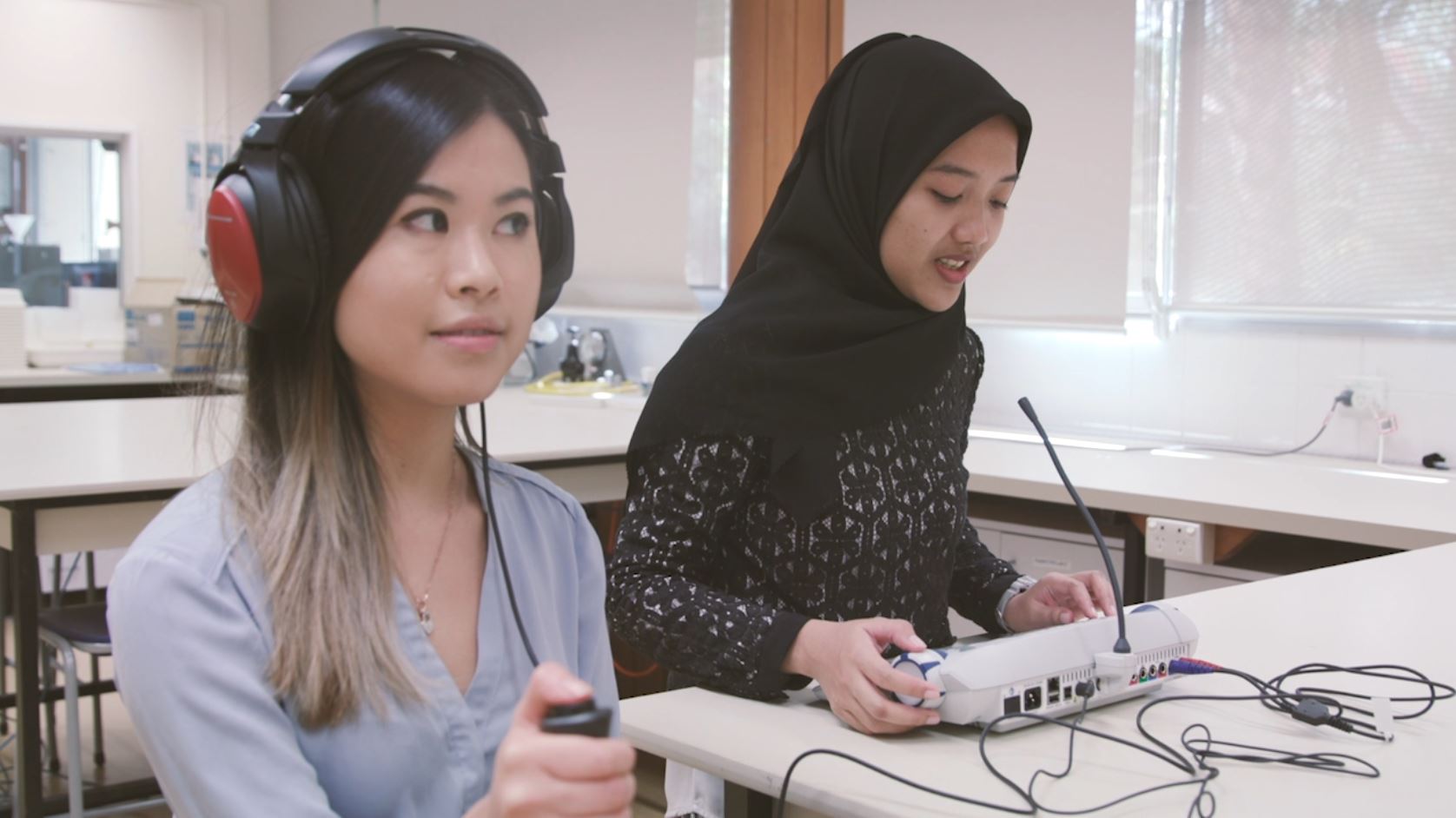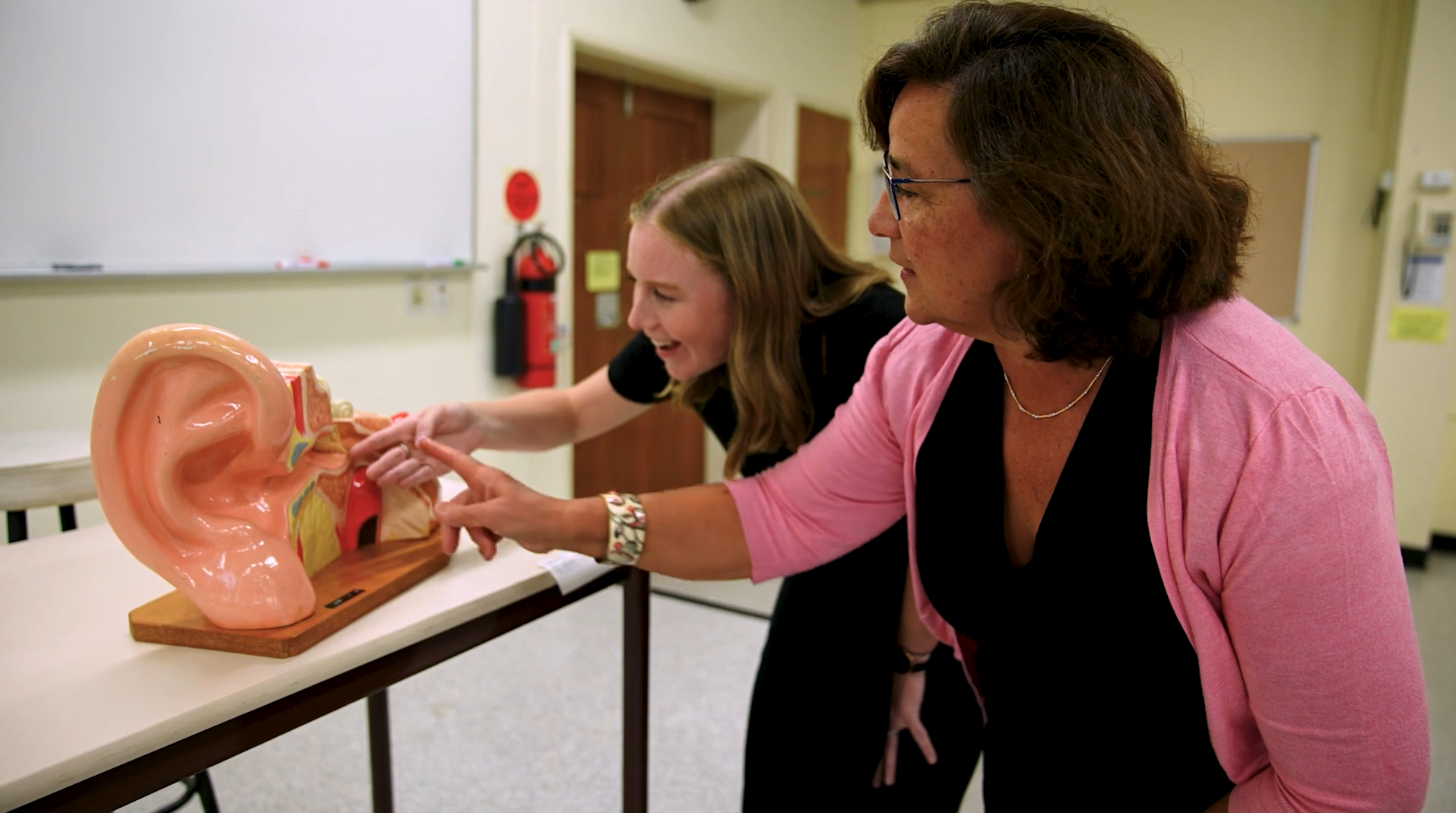Postgraduate
Master of Clinical Audiology
Contact us
Address
Student Central
The University of Western Australia (M355), 35 Stirling Highway, Perth, Western Australia 6009
Telephone
131 UWA (131 892)
International
(+61 8) 6488 1000
Hours
Frequently asked questions
Events you may be interested in
Show more eventsCareers and further study
Explore the career opportunities available to you.
Career Pathways
Many audiologists are involved in research, helping to develop new behavioural and electrophysiological test techniques, cochlear implants, hearing aids and hearing health therapies. Some audiologists work in community and workplace settings including programs aimed at reducing the prevalence and impact of middle ear disease in rural and remote aboriginal communities, newborn hearing screening programs and hearing conservation programs in industry.
Fees and scholarships
Learn more about the fees that apply to you for this course.
Domestic Student Fees
There is no current fee information available for this course. Please visit the fee calculator to browse course fees from a previous year, or other courses.
Domestic Student Fees for Full-Fee Paying Places
If you're not eligible for a Commonwealth-supported places, you will be charged a for Full-Fee Paying place. For Full-Fee Paying places, students are charged an annual course fee, charged per credit point at a rate dependent on the course in which the student is enrolled. Annual course fees are calculated based on an annual study load.
Check the handbook to confirm the annual study load for your course. Visit the Fee Calculator and select your course type to find out more. Fees are subject to annual indexation. More information on how fees are calculated.
Scholarships
Scholarships are available to students from a diverse range of backgrounds, including academic achievement, financial need, educational disadvantage, leadership and community service, artistic or sporting achievements, and being from a rural or remote area.
Master of Clinical Audiology fee categories explained
A number of different fee categories exist for the Master of Clinical Audiology, including a limited number of Commonwealth Supported Places (CSPs) available for eligible applicants.
Cost of living
International Student Fees
There is no current fee information available for this course. Please visit the fee calculator to browse course fees from a previous year, or other courses.
Scholarships
Scholarships are available to students from a diverse range of backgrounds, including academic achievement, financial need, educational disadvantage, leadership and community service, artistic or sporting achievements, and being from a rural or remote area.
Cost of living
Admission requirements
If you’re interested in furthering your career by studying this postgraduate course, find out the admission details below
Important note for applicants
Important admission information
- Ensure you have met the English Language Competence requirement for this course.
- Ensure you submit your personal statement
- Applications must be submitted by 31 August of the year prior to admission
Please note: an interview is not required for entry in 2025.
Admission Requirements
(a) a bachelor's degree or an equivalent qualification, as recognised by UWA;
and
(b) a selection Weighted Average Mark (sWAM) of at least 65 per cent;
(2) a current Australian National Police Certificate, or equivalent certification, indicating no criminal convictions. The currency of a National Police Certificate is 12 months.
Ranking information
To be considered for admission an applicant must have:
- a Bachelor's degree or an equivalent qualification, as recognised by UWA
- a minimum selection Weighted Average Mark (sWAM) of 65, calculated by UWA, see notes below
- a personal statement addressing personal qualities considered desirable in audiology practitioners
- a current Australian National Police Certificate, or equivalent, indicating no criminal convictions
Eligible applicants will be ranked for course offers based on sWAM and personal statement. Rural applicants will be ranked based on sWAM, personal statement and rurality rating.
Ranking and Selection Process
(a) a personal statement in which eligible applicants will be assessed based on the personal qualities considered desirable in audiology practitioners;
and
(b) the intake quota for that year;
and
(c) a selection score determined by the sWAM and personal statement for non-rural applicants, or the sWAM, personal statement and rurality ranking for rural applicants
OR
(d) entry via an indigenous pathway
English competency
English is the language of instruction and assessment at UWA.
Graduate applicants require at least two successful years of full-time or equivalent degree studies undertaken in Australia, Canada (excluding Quebec), Ireland, New Zealand, the United Kingdom or the United States of America. Graduate applicants who do not meet the ELC requirement via degree studies require IELTS Academic with an overall score of at least 7.0 and no band less than 7.0.
School leaver applicants must meet UWA's English language requirements for undergraduate entry.
Selection WAM Calculation
How to apply

Ready for the next step?
Find out how to apply through our simple online application process.
We'll guide you through our entry requirements, admission pathways available to you and application deadlines for your chosen course.
We can’t wait for you to join us!
Course details
About the course
Quick details
- Available
- Perth (Crawley campus)
- Full-time only
- On-campus
- Semester 1
- Please refer to the UWA Handbook
- Postgraduate
- 90540
- 033772E
Important dates
- Semester 1, 2026
- Saturday 1 March 2025
- Sunday 31 August 2025
Refer to Admissions Requirements for information on eligibility criteria and how to apply.
Course structure
Postgraduate coursework degrees and combined (coursework and research) degrees comprise a number of units. Refer to the course structure for more information.
Why study Clinical Audiology?
- You’ll develop your understanding of the professional practice in Clinical Audiology including recent developments, as well as knowledge of research principles and methods applicable to Clinical Audiology.
- Gain the cognitive skills to demonstrate mastery of theoretical knowledge and to reflect critically on theory and professional practice or scholarship, as well as the cognitive, technical and creative skills to investigate, analyse and synthesise complex information, problems, concepts and theories and to apply established theories to your clinical practice.
- You’ll be equipped to generate and evaluate complex ideas and concepts at an abstract level.





